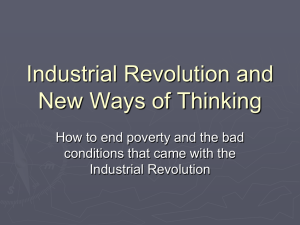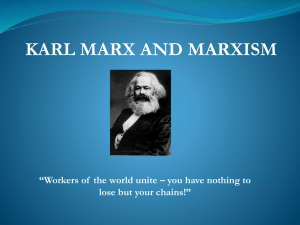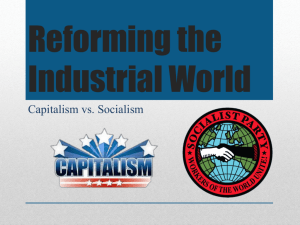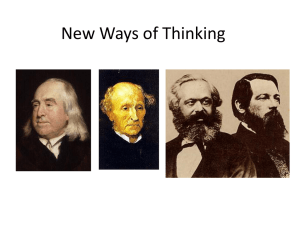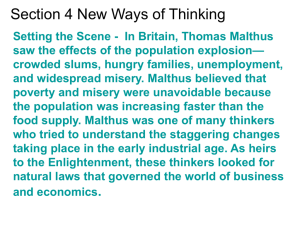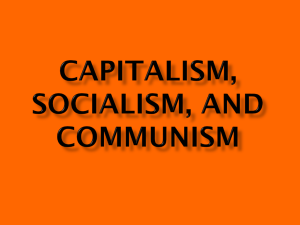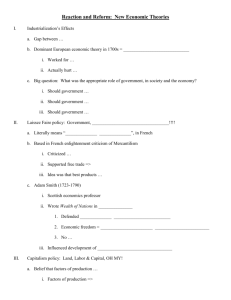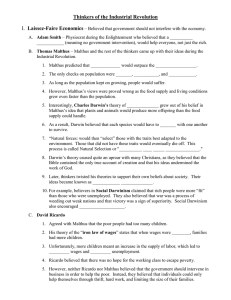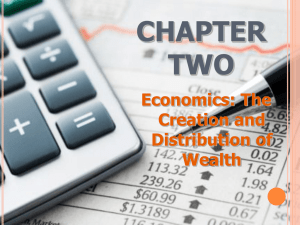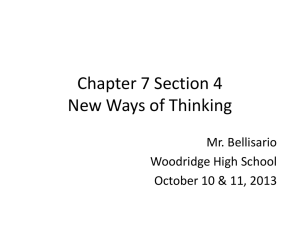New Ways of Thinking
advertisement
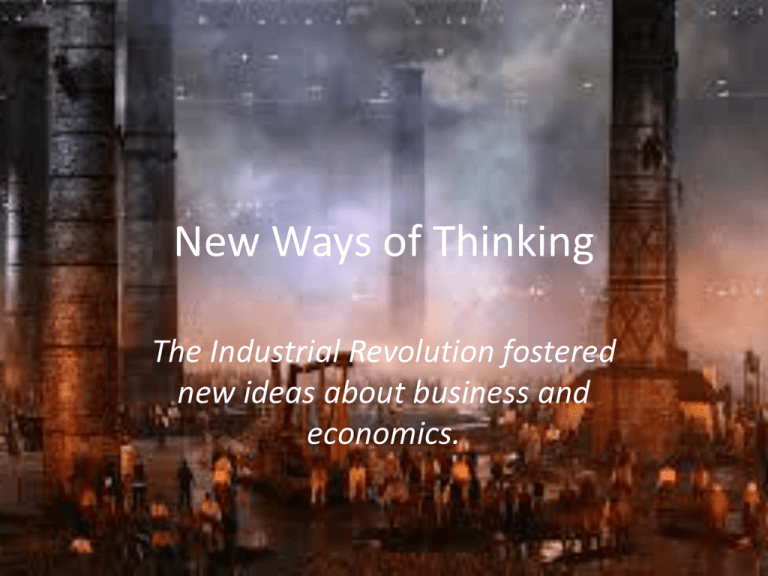
New Ways of Thinking The Industrial Revolution fostered new ideas about business and economics. Essay of the Principle of Population • “Poverty and misery are unavoidable because the population is increasing faster than the food supply….the power of population is greater than the power of the Earth to produce subsistence for man” • Thomas Malthus Laissez-faire Economics • Government should not interfere with the operation of the economy. – Laissez-faire or “hands off” economics Adams Smith • Author of Wealth of Nations • Free markets – the unregulated exchange of goods and services – would come to help everyone. • Free market would: – Produce more goods and lower prices – Growing economy would encourage investment • Government played no part in the success of the industrial age! Thomas Malthus • Believed population would outpace food supply • Encouraged people to have fewer children • Felt the poor would always suffer • His assertions were wrong: – Population did increase – Food supply grew even faster David Ricardo • Agreed with Malthus about the poor – Had too many children • Felt high wages caused people to have more children – Led to increase in labor supply and reduction of labor cost??? • Felt working class would never escape poverty • Economics became known as the dismal science. Malthus and Ricardo • Both laissez-faire economist • Best cure for poverty was not government but the free market • Individuals should improve their lot through thrift, hard work, and limit the size of their families. Utilitarians • Adaption of laissez faire principles with government intervention • Encouraged giving suffrage to workers and women – Political power to cause change • Worked for reforms in – Workers rights, the poor, child labor and public health Emergence of Socialism • Some believed gap between rich and poor to great – Evils of industrial capitalism • Socialism – the people as a whole rather than private individuals would own and operate the means of production – Farms, factories, railways, and other large businesses. Socialism • Want to develop world in which society would operate for the benefit of all members, rather than just for the wealthy. Scientific Socialism of Karl Marx • Karl Marx – German philosopher of the 1840s • Forced to leave Germany because of his ideas – Settled in London – Met another German there Friedrich Engels • Together, they wrote the Communist Manifesto in 1848 • Communism is a form of socialism that sees class struggle as unavoidable Marxism • History is a struggle between the ‘haves’ and ‘have-nots’ • The ‘haves’ owned the means of production and were the bourgeoisie • The ‘have-nots’ were the proletariat or the working class Marxism • Modern class struggle between the bourgeoisie and the proletariat • Proletariat would prevail taking control of the means of production – Set up a classless society – End the struggle between all people • Called for an international struggle to bring about the end of capitalism. Failures and Revolutions • Marxism gained support early on – His ideas never practiced as he envisioned • Proletariat never rebelled – Reforms reduced suffering of the working class • Communist revolutions occurred first in Russia and followed by other nations • By the 1990s, every nation would incorporate free market capitalism !
